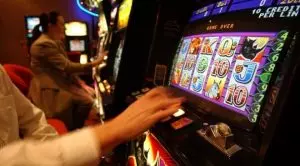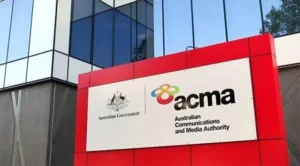 The New Zealand Government has revealed a new strategy aimed at reducing gambling harm through peer-support networks, technology pilots and residential care for gambling addicts. As announced by the Associate Health Minister Jenna Salesa today, the strategy is set to start on July 1st and will cover three years. Also, an NZ$60-million package to help problem gamblers, especially in Pacific and Asian communities, was announced.
The New Zealand Government has revealed a new strategy aimed at reducing gambling harm through peer-support networks, technology pilots and residential care for gambling addicts. As announced by the Associate Health Minister Jenna Salesa today, the strategy is set to start on July 1st and will cover three years. Also, an NZ$60-million package to help problem gamblers, especially in Pacific and Asian communities, was announced.
The funding would come from the levy paid by gambling operators, including local casinos, non-casino gaming machine operators, the New Zealand Lotteries Commission and the New Zealand Racing Board.
As explained by Ms Salesa at the time when she officially released the strategy at South Seas Healthcare Clinic, the new approach adopted by the New Zealand Government in terms of problem gamblers in the region is strongly in line with the recommendations made in the the 2018 He Ara Oranga report on mental health and addiction, according to which gambling was seen as a harmful activity because of its addictive nature and the possible negative consequences it could have on families and communities.
As mentioned above, the new strategy will be adopted by the country’s Government for a 3-year period, with NZ$5 million of the funding package set to be spent on new services and innovations, targeting people who seems to be most affected by gambling-related harm, with a major focus on people from Māori, Asian, Pacific, and some low-income society groups.
Ms Salesa has reminded that at the time, about 5% of the country’s population faces some level of gambling-related harm, and one in fine New Zealand residents will be affected by their own or someone else’s gambling in their lives. The Associate Health Minister confirmed that the key focus of the new Government’s strategy would include improving equities for Māori, Asian and Pacific communities, which have been disproportionately affected by the negative consequences related to gambling.
Māori, Asian and Pacific Communities Are the Most Affected by Gambling-Related Harm
 According to Andree Froude, a spokesperson of the Problem Gambling Foundation, gaming machines remain recognised as the worst form of gambling. This is exactly why she welcomed the announcement of the new strategy.
According to Andree Froude, a spokesperson of the Problem Gambling Foundation, gaming machines remain recognised as the worst form of gambling. This is exactly why she welcomed the announcement of the new strategy.
Ms Froude reminded that there are five times more poker machines in the poor communities across New Zealand than in the more affluent communities.
As the Government has revealed, the funding includes NZ$2.3 million for new intervention services for New Zealand communities, NZ$1.5 million for special technology, including machine-related monitoring and online support, NZ$700,000 to pilot peer support and NZ$500,000 to pilot residential care. Of course, the new services will take some time to develop, but the additional information released by the Ministry of Health about the new strategy states that a special database with facial recognition capabilities could be developed, as well as special online support tools aimed at customer monitoring and imposing limits on exposure to gambling harm.
Residential care would target a small number of problem gamblers, which would be about five people on an annual basis. Peer support is to involve people who have already recovered from gambling addiction.
- Author


